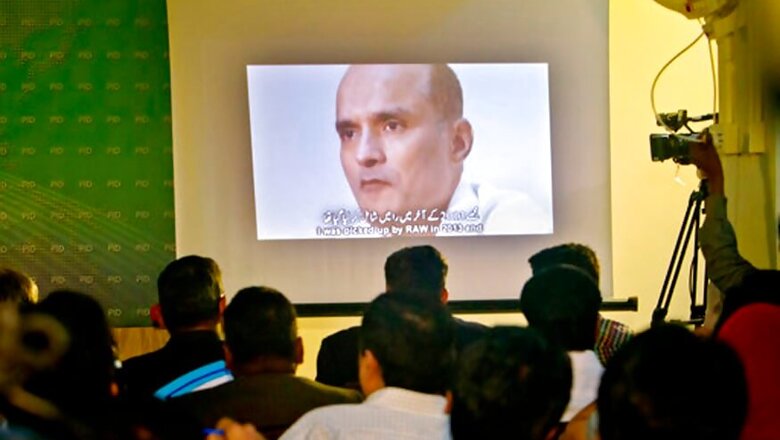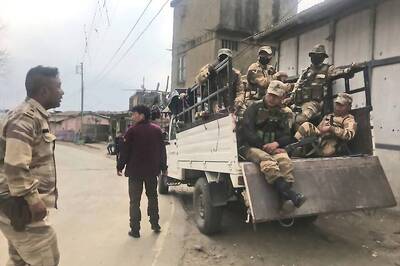
views
New Delhi: Two years after India approached the International Court of Justice to save Kulbhushan Jadhav from the gallows in Pakistan, it will finally pronounce the judgment on Wednesday evening. In a clear shift from the stand to not approach the ICJ over bilateral issues, India was forced to knock the doors of the principal judicial organ of the UN because “it was a matter of life or death” as one source said about the pressing need to make the move in May 2017.
India approached the ICJ at The Hague three weeks after Pakistan’s military suddenly announced that Jadhav, who was in their custody for over a year, had been handed down a death penalty by a military court. In a provocative step, the Pakistan military media wing ISPR announced, “The spy was tried through Field General Court Martial (FGCM) under the Pakistan Army Act (PAA) and awarded the death sentence. Today Chief of Army Staff Gen Qamar Javed Bajwa confirmed his death sentence awarded by FGCM.”
India not only expressed shock at the sudden developments, since it had made repeated requests — close to two dozen — for consular access since March 2016 which were not heeded to but was also not informed of any proceedings in the military court.
So, India approached the ICJ on this very premise. Pakistan’s move was an “egregious violation” of the Vienna Convention on Consular Relations 1963 (Vienna Convention). It failed to inform India, first and foremost, about Jadhav’s detention on time. Then, Pakistan declined consular access to Jadhav so that legal help could be extended to him by India. It failed to inform Jadhav of his rights under Article 36 of the Vienna Convention.
Following from the above arguments, India's counsel Harish Salve made a case of gross violation of basic human rights in this matter and urged the court to annul the Military Court’s sentence and ask Pakistan to free Jadhav or alternatively, ask Pakistan to carry out the proceedings in a civilian court after providing consular access to India.
Pakistan had initially questioned the jurisdiction of the ICJ in a matter they insisted related to grave terror charges against Jadhav. The ICJ set aside jurisdiction concerns by suggesting it had the right to go ahead with the case as it directly invoked clauses of the Vienna Convention, an international law that comes under its purview.
After two oral and two written submissions over the last two years, India’s agent Deepak Mittal, joint secretary in the Ministry of External Affairs, will be present at the Hague today and is expected to bring back good news. India is extremely hopeful that its forceful and effective arguments in the ICJ will result in the case going in its favour, with the country not only getting consular access to Jadhav but ultimately be able to free him from Pakistani custody.
After much protest earlier, Pakistan had also committed that it will abide by the ICJ’s verdict. However, just two days ago, Pakistan foreign office spokesperson Mohammad Faisal said one cannot prejudge the judgment of the ICJ.
Pakistan had claimed that its security had arrested Jadhav from Balochistan on March 3, 2016. They continued to insist that he was a serving Indian naval officer who was indulging in espionage and terrorism. India immediately and vociferously denied the charge, saying Jadhav was a former navy officer who was carrying out legitimate business at Chabahar Port in Iran. India said it was unaware of how Jadhav landed in Balochistan as claimed by Pakistan and believes it is a case of him being kidnapped and brought to Pakistan.
The ICJ completed the hearing on February 21 after which the case was under deliberation for almost five months. Earlier this month, the court said Judge Abdulqawi Ahmed Yusuf, President of the Court, will read the decision in a public hearing at the Peace Palace in the Hague on July 17.


















Comments
0 comment